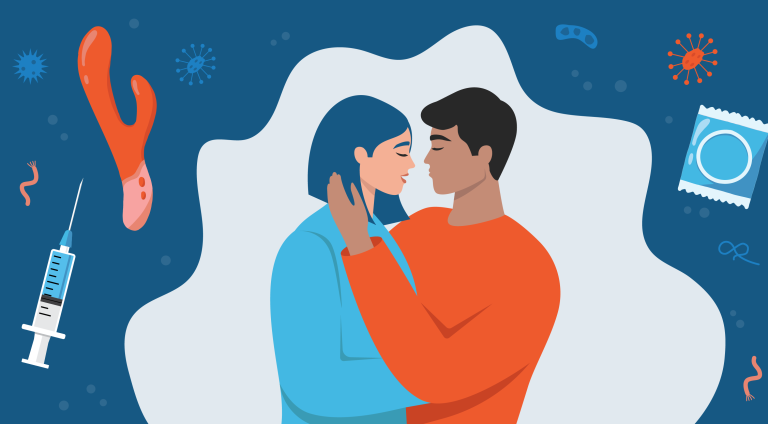There is a common misunderstanding about sexually transmitted diseases (STDs)–specifically concerning whether or not virgins can have STDs. Whether you’re a virgin concerned about STD-related symptoms or have recently had sexual contact with someone who claims to be STD-free due to their virginity, it’s completely normal to ask these questions.
Staying knowledgeable about STD myths and misconceptions such as this will not only protect your sexual health but that of others as well.
But can a virgin have an STD? Should you rush to your local STD testing center anyway? We’ll answer these questions and more.
Yes, virgins can still have STDs.
First and foremost, losing virginity can mean any different thing to many different people. For example, many agree that men and women lose their virginity after penetrative intercourse. In contrast, others believe oral and anal intercourse can also be a loss of virginity. Therefore, virginity is very subjective and should not be used as a replacement for getting tested.
STDs are majorly contracted through unprotected vaginal and anal sexual intercourse. Generally, the best way to mitigate the chances of getting STDs is using male condoms, a dental dam, a female condom, etc.2
However, you should be aware that regardless of using condoms as a contraceptive measure, virgins can also contract STDs in other ways. For this reason, whether you’re a virgin experiencing symptoms or have had unprotected sex with a virgin, it is still wise to test yourself before engaging in intercourse.
How can you catch STDs without having sex?
One point to note is that STDs can be transmitted in more ways other than sexual contact. For instance, some of the methods are listed below.
- Kissing: Aside from mononucleosis, you can get herpes from kissing, which can cause cold sores and viral shedding.
- Oral sex: Most people do not consider oral sex as “sex” due to a lack of contact with the nether regions. However, it can expose sexual partners to genital herpes, HPV, and oral chlamydia in rare cases.
Sharing unclean sheets, towels, or clothes might not harbor viruses, but they can have single-celled protozoan parasites. For example, Trichomonas vaginalis, which can cause the STI known as trichomoniasis, can spread through damp towels or bathing suits.3
Should virgins still use protection?
There is no debate on the notion that prevention is better than cure; therefore, whether a virgin or not, you should not have unprotected oral, anal, or vaginal sex. These are some of the most common methods to prevent STDs that virgins should consider.4
- Male condoms: are fitted over the penis to prevent skin contact during intercourse.
- Female condoms: are also internal condoms to provide extra protection from diseases for the labia, perineum, and base of the penis.
- Dental dams: are latex or polyurethane sheets placed between the mouth and vagina or anus during oral sex to prevent oral STDs.
- Vaccinations: are available to prevent hepatitis B and HPV.
Should I Get Tested?
Men and women should have full STD screening before sexual intercourse, regardless of whether they’ve had sexual partners. Lab-based STD tests can detect the most common STIs, providing peace of mind and routes for treatment if needed.
Don’t hesitate to get tested if you have an STI scare due to previous sexual contact. Priority STD Testing not only offers discrete, professional testing locations, but also a team of care counselors to help you through the process.
Sources
- “STD Diseases & Related Conditions.” Centers for Disease Control and Prevention. December 8, 2021. https://www.cdc.gov/sti/about/
- “Understanding Sexually Transmitted Diseases (STDs).” WebMD. January 14, 2021. https://www.webmd.com/sexual-conditions/sexual-health-stds.
- “Trichomoniasis Fact Sheet.” Naval Medical Center Portsmouth. (n.d.) Accessed June 15, 2022. https://portsmouth.tricare.mil/Portals/130/Trichomoniasis.pdf.
- “How You Can Prevent Sexually Transmitted Diseases.” Centers for Disease Control and Prevention. March 23, 2022. https://www.cdc.gov/sti/prevention/.

